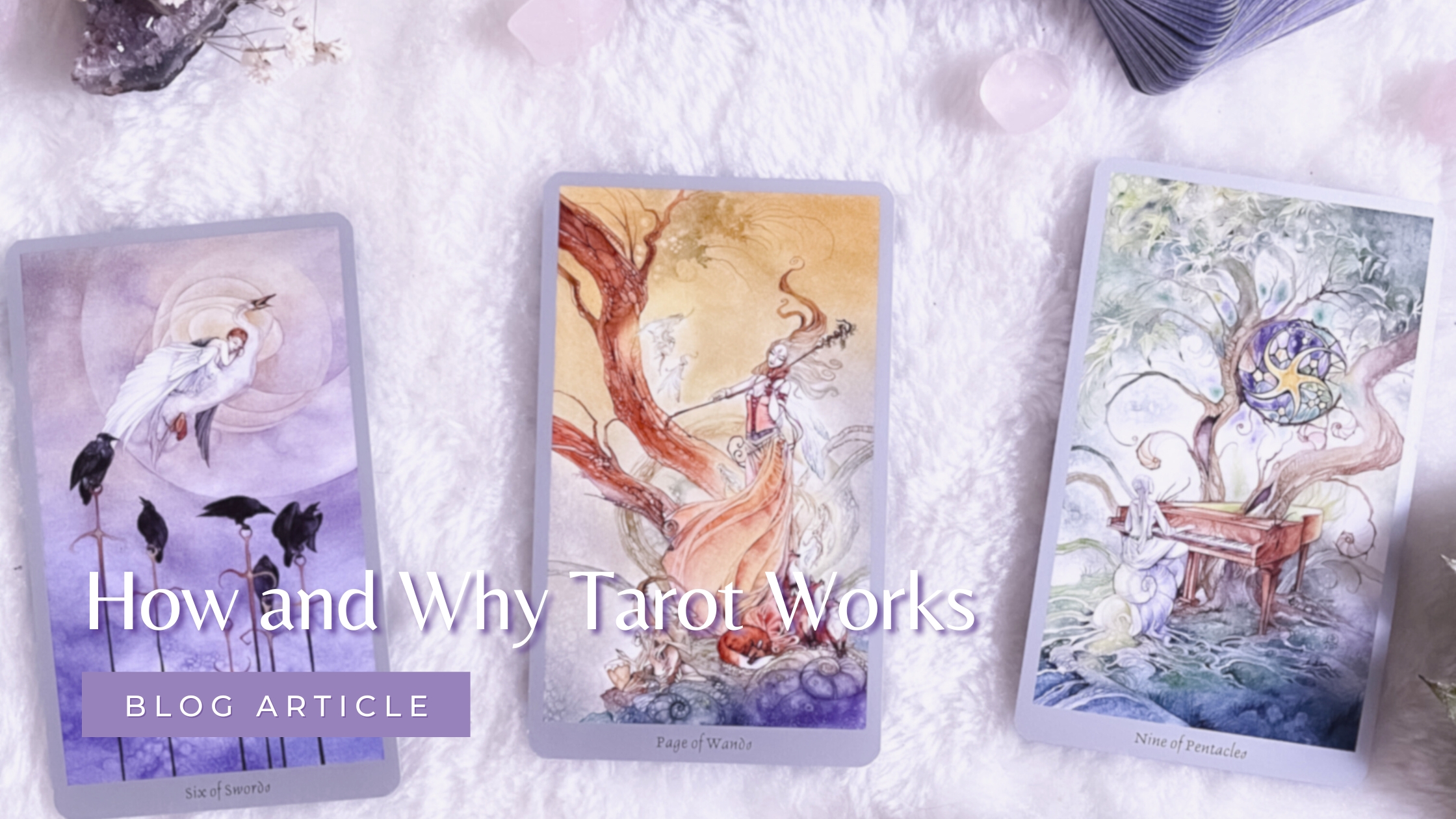How Your Spirituality and Identity Are Related
Spirituality is about seeing beyond yourself and appreciating the sacred. Because of this, we’re used to thinking of spirituality as a calming and reaffirming practice.
However, sometimes spirituality is a challenge. Everything we believe or how we approach what we believe begins to feel wrong and we often don’t know what to do about it.
When you’re unsure about your spiritual growth, that’s when you’re suffering from a spiritual identity crisis. This is when the relationship between your spirituality and identity has been broken.
But what’s happening exactly and why?
An Identity Crisis is a Spiritual Crisis
It’s not uncommon for a middle-aged person to feel “stuck.” They reach a point in their lives when they look back on how they lived and feel unsatisfied with where they’re going. They no longer feel like they’re in control and that can be disorienting.
The mid-life identity crisis is usually resolved by a lot of soul-searching and some hilarious decisions that will seem ridiculous in hindsight. Yet it usually helps a person reconcile who they were in the past and who they want to be going forward.
Any identity crisis is a spiritual crisis because spirituality is intimately connected to how we approach personal meaning. But while mid-life crises are the most well-known, anyone can suffer an identity crisis at any age, and some are more spiritually charged than others.
When a person is having an identity crisis that prominently features existential questions, then they’re suffering from a spiritual identity crisis.
Symptoms of a spiritual identity crisis include:
- Knowing you’re supposed to do something more with your life
- Unsure or afraid of making spiritual changes
- Feeling alienated from others because of your beliefs
- Restlessness towards spiritual ideas
You’ll know you’re having a spiritual instead of a normal identity crisis when worldly approaches just don’t cut it anymore. It’s not just feeling unfulfilled in your career – it’s feeling that the direction you’re going in is morally wrong because you aren’t being true to your destiny.
Why You Need a Spiritual Identity
There are many ways to experience meaning, some of them even religious in nature, but that doesn’t mean they’re spiritually meaningful. This is why having a religious identity, such as Christian, Wiccan, or Buddhist, isn’t sufficient to have a spiritual identity. It’s also why many religious people are spiritually dead inside.
A person who is actively interacting with the divine and putting the big existential questions into personal context is creating and having a spiritual identity. A spiritual identity allows a person to create a framework for their life that’s individual to them.
Christians will often talk of having a “personal relationship with god” through Jesus. They aren’t just the name Christian – spiritual Christians actively pray, think, and live according to their beliefs. It’s more than just doing what other Christians do. It’s about doing what they individually need to do to connect to their source of divinity.
No matter your religious views, theist or atheist, you should create and maintain a spiritual identity for yourself. Whatever inspires ultimate awe in you, which is often god but could be the universe, is where you place your devotion and develop sacred rituals for connection.
This will help you create a positive framework for life and live beyond the scope of your own individual experience which you need for fulfillment.
Your Spiritual Awakening is a New Ego
Everyone has a spiritual awakening, though it’s easier and healthier to have one as a child. Unfortunately, most people don’t get this opportunity and have to experience the joys (and pains) of a spiritual awakening after they have already developed their ego.
Your ego is your perspective of self, but an unhealthy ego is elevated over everyone around you – even your true self. You’re hungry for this idealized version of yourself and devote your entire life towards making it a reality.
However, it’s never going to happen. This is what causes all identity crises, but once you realize you have a false ego, then you become spiritually awakened.
Your ego will need to die for your spiritual identity to rise. This is how you’ll experience a personal transformation unlike anything else you’ve lived through before.
There’s only material growth when you live for your ego. Spiritual growth can only come from a spiritual awakening that forces you to wake up to who you really are and what the universe is truly like.
Many people don’t like the idea of letting their ego die, and if you’re resistant to that concept, then it means you either haven’t gone through a spiritual awakening yet or you’re currently fighting your spiritual growth. Detachment from your unhealthy ego isn’t abandoning your individuality – it’s recognizing it.
Spiritual Growth is Identity Development
Once you’ve allowed your ego to die, the next step in your identity development is spiritual growth. Although this can be a difficult process, most people tend to find it challenging in a fun and reaffirming way.
Through knowledge, activities, and personal development you’ll grow in your spirituality. However, this does require a time commitment.
One of the easiest things you can do is to meditate or journal and it should be a daily or weekly practice so you can tap into your true self laid bare. Others may choose to pray or give offerings.
Beyond that, I would suggest you look into spiritual rituals that you can do often, at least once or twice a month, which are involved and allow you to experience the sacred separate from your normal reality by connecting to your source of divinity.
It’s also a good idea to research, but don’t mistake this as a spiritual ritual. Christians who read their Bible would be partaking in a spiritual ritual, but a Christian who studies Church history would not be partaking in a spiritual ritual – it’s important you know the difference.
Feeding your mind is not connecting to the divine. It’s preparing your mind for that connection in the future.
All these actions will help you to better understand yourself in context to the universe around you. This is how you can develop your spiritual identity over time through spiritual growth. It takes time and effort, but most people do enjoy it.
Different Types of Spiritual Identity to Discover
Your spiritual identity is not a single individual, or rather, not a single person in one being, but many persons. The spiritual self is influenced by your religious and cultural views, and it exists in an ambiguous spectrum.
However, we can use examples from different spiritual paths as illustrative examples. Western culture views the spiritual self as mind, body, and spirit, likely because of the Christian Trinity. This is perhaps why I detailed activities for spiritual growth into three different forms: knowledge, physical ritual, and personal awareness. But not every religion had these three parts.
Norse pagans had four:
- Shape = Appearance
- Thought = Personality
- Follower = Spirit Guide
- Luck = Genetic/Destined Inheritance (this is what is reincarnated into descendants)
Because of Europe’s origins in paganism, the idea of spirit guides isn’t unusual, though the “shape” and “luck” are more complex. A person’s “shape” can change much in the way of shapeshifters and a person’s “luck” can seem more like karma.
Interestingly, European paganism was derived from the same ancestor group as Hinduism, Indo-Europeans, and the Indo-Europeans also had similar ancestors to Native American paganism – so you can see the spiritual relationships between the different religions in that way.
Regardless, your spiritual self is layered and your understanding of it is likely culturally determined. It is, however, more than just your “soul” and is your entire plural being. You are different beings inside the same spiritual identity. You can and should explore all of who you are.
Final Thoughts
If you’re suffering an identity crisis, then you’re really suffering a spiritual crisis, though this is more prominent when you have existential questions rather than worldly ones. Moving beyond that crisis requires you to embrace your spiritual identity by accepting the death of your ego.
Many will fight against their spiritual growth, but you don’t have to be one of them. There are depths to who you are that you don’t even know exist yet, so when you have a spiritual awakening and reconcile all the different parts of you’re being, you’ll be able to connect to something greater and more inspiring than your own fleeting desires.






